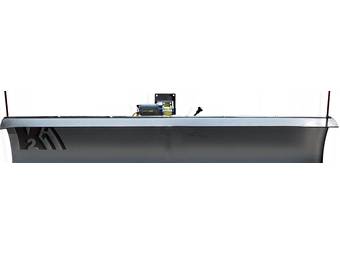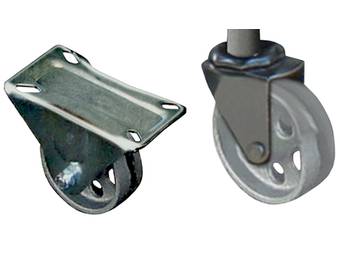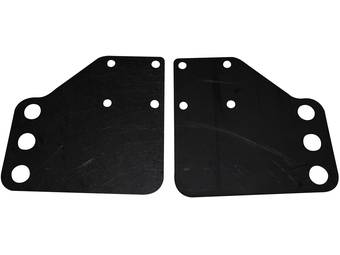Free Shipping On Orders Over $100
2018 Toyota 4Runner Snow Plows for Trucks
Only display items that ship the quickest
Choosing the Right Snow Plow
While most snow plows feature a universal fitment, selecting a model and configuration that’s compatible with your vehicle is essential. Narrowing down your selection isn’t difficult, but it’s important to follow a few basic steps.
Step 1: Match the Plow to Your Vehicle (Size, Power, Style)
Snow plows come in several shapes, sizes, and mounting styles; before making your selection, gauge which plows are compatible with your vehicle. We recommend selecting a snow plow that’s scaled to your vehicle’s size and weight. For example, a small vehicle, like a Jeep Wrangler, should be paired with a narrower, lighter-weight plow, whereas a heavy-duty pickup, like an HD ¾-ton, should be paired with a wider, heavier-duty snow plow.
Step 2: Understanding Different Snow Plow Shapes
Aside from the overall dimensions of a snow plow, these handy tools come in several different configurations and are used for different purposes. Some of the most popular plow styles include:
Straight Plows: Plows with straight blades (moldboards) are ideal for clearing large, open spaces.
V-Plows: Highly versatile plows with configurable moldboards for V, straight, or scoop shapes. This versatility enables plow operators to clear snow in a variety of settings.
Box/Push Plows: A plow with a capped-off moldboard, ideal for clearing large areas. Box/push plows are most commonly used on vehicles like skid steers or compact tractors.
Step 3: Understanding Moldboard Variations
A snow plow's moldboard, also known as the blade, greatly impacts the functionality of the plow. As such, most companies offer multiple moldboard options, including variations in:
Material: Moldboards come in several materials offering different price points and strengths. Polyethylene moldboards, for example, are heavier and pricier than their steel counterparts. They’re highly resistant to abuse and corrosion. On the other hand, steel moldboards are tried-and-true; they also cost and weigh less than their polyethylene counterparts but are susceptible to corrosion.
Tripping Action: Tripping action is an excellent feature in a snow plow, especially for novice operators. Full-trip plows feature moldboards that flip forward upon contact with stationary objects hidden beneath the snow. This feature limits damage to the plow, hidden object, vehicle, or driver.
Specs: Moldboards come in several shapes and sizes. When selecting your plow, consider the dimensions of the moldboard, including the highest attack angle, and curvature. As a rule of thumb, taller moldboards have a higher attack angle, and the more curved the blade, the better it cleans the surface.
Step 4: Consider Mount and Operating Systems
Most snow plows feature adjustability that enables you to raise, lower, and pivot the blade from inside your vehicle’s cab. These plows feature handheld controllers located within reach of the driver; as a result, it’s vital to ensure these controls are comfortable and intuitive.
Additionally, you’ll have to consider mounting options. While some plows require vehicle-specific mounts, others mount directly into front hitch receivers. However, you must verify that your front hitch can support the weight of whichever plow you select!
Snow Plow Types
Aside from the shape of a snow plow’s moldboard, there are several other variations to consider when selecting a snow plow, namely the snow plow type. The most popular snow plow types include:
Manually Operated: A manual snow plow attaches to your vehicle using either vehicle-specific brackets or a front-mounted hitch receiver. These plows are raised, lowered, and angled manually, by hand. While less expensive than electric plows, you’ll need to make each adjustment from outside of your vehicle.
Electric: Alternatively, electric snow plows feature integrated electric motors that offer full adjustment and operation from inside the cab! In extreme weather conditions, operating the plow without leaving the comfort of your heated cab is a massive upgrade.
Hydraulic: Hydraulic plows are similar to electric plows; however, they utilize hydraulic pressure to lift and angle the plow. Most utilize a hydraulic pump and in-cab electric controllers for fine control, allowing you to plow quickly and accurately.




